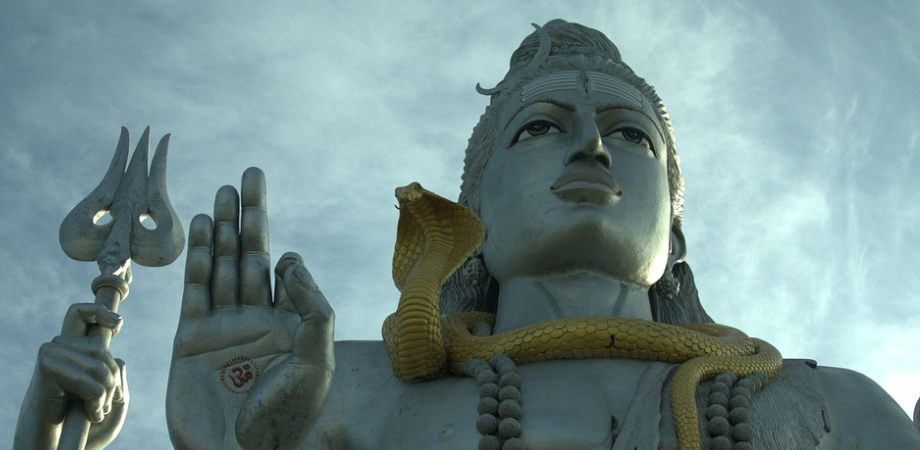Every year, Maha Shivratri is celebrated with great pomp and circumstance. It is regarded as a very special time of year because millions of people celebrate this momentous occasion with zeal and glee. Lord Shiva devotees celebrate this occasion with great pomp and circumstance. It is accompanied by folk dances, songs, prayers, chants, and mantras, among other things. The beautiful occasion of Maha Shivratri will be celebrated this year on February 18, Saturday.

Maha-Shivratri is one of the most significant festivals in the Hindu calendar. It is celebrated on the 14th night of the new moon in the month of Phalguna, which usually falls in February or March. This festival is dedicated to Lord Shiva, one of the three major deities in Hinduism.
The word Shivratri is derived from two words, ‘Shiva’ and ‘ratri’ which means ‘shiv ki ratri.’ This festival is celebrated all over India and holds great significance for the devotees of Lord Shiva.
On this day, people fast, stay awake at night, and pray to the Lord for blessings, happiness, hope, and prosperity. This festival is very important and is regarded as one of the most important festivals in India.
History of Maha Shivratri
There are various theories as to why Maha Shivratri is celebrated. Lord Shiva and Goddess Parvati are said to have married on the day of Maha Shivratri. As a result, this festival is held every year to commemorate their holy union. Others believe that Maha Shivratri is celebrated to commemorate the day when Lord Shiva drank the poison that was churned up from the ocean. He protected the world from evil spirits, negativity, darkness, and dismay by doing so.
Another popular belief holds that on Mahashivaratri, Lord Shiva performs the ‘Ananda Tandav,’ or the blissful dance of divinity, in order to construct all three stages of this cosmos, namely creation, preservation, and annihilation. Devotees commemorate the occasion by chanting mantras, reading scriptures, meditating, and recalling the Lord’s grandeur.
Here are some reasons why Shivratri is so significant:
Worship of Lord Shiva
Shivratri is the night dedicated to Lord Shiva, and devotees offer prayers, fast, and perform rituals to seek his blessings. Lord Shiva is known as the destroyer of evil, and his worship is believed to bring peace and prosperity to the devotees.
Symbolism
Shivratri is celebrated on the 14th night of the new moon when the night is darkest. This is symbolic of the dark and difficult times in our lives, which we must endure and overcome. The festival represents the triumph of good over evil and the power of light over darkness.
Fasting
Fasting on Shivratri is a common practice among devotees. It is believed that fasting helps to purify the mind and body, and helps one to focus on their devotion to Lord Shiva. Some devotees observe a complete fast, while others consume only fruits and milk.
Nightlong Vigil
On Shivratri, devotees often stay awake all night and offer prayers to Lord Shiva. This is known as the ‘Jagran’ or nightlong vigil. Devotees sing bhajans, chant mantras and perform rituals throughout the night to seek the blessings of Lord Shiva.
Sacred Rituals
Shivratri is celebrated with great enthusiasm and devotion, and various rituals are performed to seek the blessings of Lord Shiva. Devotees offer water, milk, honey, flowers, and fruits to the Shiva Lingam, which is a symbol of Lord Shiva. The Lingam is bathed with milk and honey and decorated with flowers.
Cultural Significance
Shivratri is not just a religious festival, but it also holds great cultural significance. The festival brings people together and strengthens the bonds of love and brotherhood. It is an occasion to forget past grievances and forgive each other.
5 Tips to Make Most of Mahashivratri:
Eat Light: Keeping your body light will make you receptive to grace.
Take a Cold Shower: Besides cleaning the skin, water purifies the body on a deeper level. The cold water will also keep you alert!
Play a Chant: Keep a Chant on in the background throughout the day. You can pick any chant that resonates with you.
Apply Vibhuti: Vibhuti or scared ash can be applied at these points on the body: between your eyebrows, the pit of your throat, and the center of your chest where the ribcage meets.
Keep your Spine Erect: As there is a natural upsurge of energies on Mahashivratri, keeping your spine erect through the night enables you to reap immense benefits.
In conclusion, Shivratri is a significant festival in the Hindu calendar. It is a time for devotees to seek the blessings of Lord Shiva, and to remember the triumph of good over evil. It is an occasion for fasting, offering prayers, performing rituals, and staying awake all night to seek the blessings of Lord Shiva. Shivratri is not just a religious festival but also holds great cultural significance and is an occasion for people to come together and strengthen their bonds of love and brotherhood.
Read more: Vedic Astrologer | Saturn – The Disciplinarian | Vastu-Demolition of all Problems


